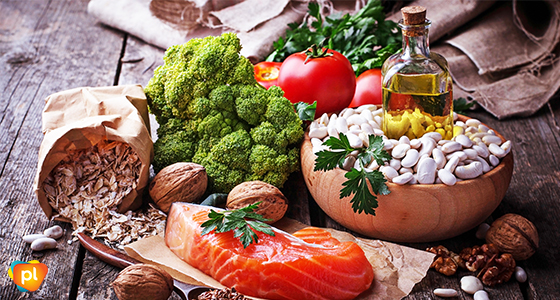
It’s commonly understood today, that people living with HIV experience chronic inflammation. Inflammation is our body’s natural defence response to repair and defend from infection or injury. Normally when we have an injury, from something as small as paper cut to any kind of infection or toxin, the body begins a natural healing process. This process includes producing a range of different cells, antibodies, and chemicals as part of our body’s built-in defence system.
In the case of the chronic or long-term health condition of HIV, over time this response also becomes chronically over-active. Eventually this constant state of defence or preparedness to respond has a negative effect on cells and organs, and has been linked to a number of undesirable health conditions like cancer, disease and illness.
As someone living with HIV, I’ve been thinking about how I can reduce this inflammatory response and hopefully also lower my risk of long term damage. With a quick Google, I found a range of different strategies, from food, drink, and supplements to lifestyle activities, that I could add to my everyday life.
One of the more significant ways that can support the reduction of inflammation is reducing stress. Psychological stress contributes to a range of chronic diseases, regardless of HIV. Stress has been linked to increased risk of stroke and other cerebrovascular events specifically in people living with HIV. Strategies and activities that reduce stress are wide-ranging and differ from person to person depending on your temperament and personality. Suggestions varied from getting a massage, taking a brisk walk, connecting with other people, guided meditation, using a regular counsellor, and if you’re employed, maintaining a work/life balance.
Getting enough rest and a good night’s sleep are a substantial way to ensure ongoing brain health and reduce inflammation. Our stress levels are interlinked with sleep, and poor sleep increases the body’s inflammatory response. Research published in 2022 showed that reduced sleep negatively alters the structure of our DNA inside the immune stem cells which has a long lasting effect on increased inflammation. I found plenty online that gave me tips, suggestions, and strategies to get a better night’s sleep, which over time can contribute to reducing inflammation.
Activities that support a reduction in inflammation include the kinds of movement found in walking, yoga, gardening, cycling, swimming and gentle moderate resistance exercise. A study published in 2021 show that regular physical exercise actually has an anti-inflammatory effect for people living with HIV.
One of the easier options is increasing your intake of antioxidants and omega-3 fatty acids. Following a low glycemic diet and reducing saturated fats also benefits your health in other ways as well. These foods include vegetables, fruits, pasta and noodles, rice, fish and seafood, nuts, grains, legumes and whole grain and multigrain breads. Certain spices and supplements can be helpful. These include fish oil, turmeric, ginger, garlic, and cayenne. Teas that reduce inflammation include chamomile, ginseng and green tea.
With this range of quick and easy options to reduce inflammation, it feels achievable to weave one or more of these as small tweaks or choices into my daily life. I don’t need to adopt them all at once. Gradual small change is better than none at all. Even one small decision will be something reduce my body’s inflammatory response and over time benefit my health.
If you want to brainstorm your options with someone else living with HIV, get in touch with us at Positive Life NSW on 1800 245 677 or (02) 8357 8386 or email contact@positivelife.org.au







